And what are we up to today?
Standard Candle - now on sale!7/29/2020 It is with great pride that I present to you a new novella, short and sweet, about friendship, friends with benefits, and the night that changes everything.
Be sure to head over to my Contact page and sign up for my newsletter! I give out prizes for absolutely no reason. ^_^
1 Comment
Author Interview - Barbara Ann Wright6/30/2018 Fans of sci-fi!!! And I mean massive-ships-flying-intense-trade-routes-through-dynasty-owned-space sci-fi... 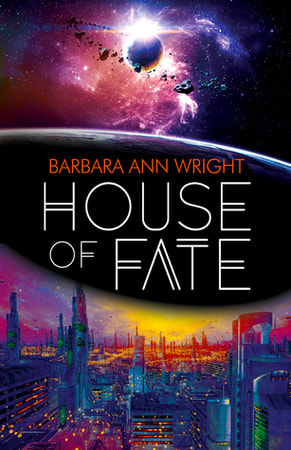 It didn't matter how good a fighter she was or how irrefutable her alibi. The Meridians would never stop watching her. They would always suspect. So before she could kill anyone and take firm control over their new, joined house, she would have to separate Noal from his family. No seductive charms would do that, but with the worm, he'd do it himself. hey survive. The fate of two houses... and the fate of the universe. I was lucky enough to read this book for last year's round of the Rainbow Awards. I am so glad I did! As a fan of the sci-fi universes in Dune, The Expanse, and Red Rising, I found just about all of my buttons pushed with this novel. A vast scope, engaging characters, an assassination plot, and a glorious amount of dynastic scheming make for a read that is easy to get lost in and difficult to put down. And it was a winner of the 2017 Rainbow Award for Best Lesbian - Sci-Fi/Futuristic! Grete: Not only are the stakes in House of Fate super high when established, they ramp up even further about five minutes into the read. How did you manage the pacing in this story? Did you find any aspects especially tricky? Barbara: I knew I wanted the beginning of House of Fate to start off a little slow, with an impending wedding and everyone thinking they know exactly who they are and who everyone else is. Then I wanted their worlds to explode, and the pace to be at breakneck speed so no one could stop to ponder that everything they knew is a lie. Annika is not a perfect space princess, and Judit was never going to be just a guardian for her cousin. I didn't want to give anyone time to be paralyzed by new knowledge until later in the story. I found this tricky because I needed the scenes to be fast and exciting enough for the characters to not take a breath, yet the scenes also needed to flow and be understandable so the reader was never confused. G: The universe you have built is rich with color and rife with action. The scope is huge! Can you please talk about your process developing it? B: Thanks! I knew I wanted a large scale for this book, setting-wise, so I started with what that might look like. I eliminated aliens from the galaxy right away. That would have been too much to deal with. Then, to make the scale seem a little smaller, I created houses based on Romeo and Juliet (for the star-crossed lover aspect) and Dune by Frank Herbert, though without the unifying presence of the emperor. Then I set the events in motion by creating a war for the two largest houses and showed impending instability by saying that the smaller houses were tired of this war. I wanted to start on a knife edge for everyone. G: What was the most interesting thing you researched for writing House of Fate? B: Definitely faster-than-light (FTL) travel. I needed characters to get from place to place either instantaneously or in a matter of hours/days. That meant two different types of transportation: gates and engines. I watched a lot of Sci Fi and read a lot of nonfiction on the theory. I discovered that most of the time, in Sci Fi that has FTL travel, going across the entire galaxy would still take hundreds of years. I needed gates like those in the video game Mass Effect to show humans relying on tech rather than on a biological solution as in Dune. G: Annika is my favorite character; her moral complexity and especially her learning journey make for engrossing reading. How much change did her personality go through while you were writing? Did she turn out different from how you originally imagined? B: I like Annika, too! She was a great character to write. She was also challenging because I wanted her to be a killer, yet not as cold-blooded as a full psychopath. Her moral code is extremely warped, but she wants to be better, which is why she's willing to listen to Judit and Noal. I had to pull her back a bit from coming off as too bloodthirsty. I didn't want her to enjoy killing but to see it as just a thing everyone has to do in order to get by. G: Which character surprised you the most? B: Probably Noal, Judit's cousin. I had Judit and Annika well planned out, but after the first few scenes, I didn't quite know what to do with Noal. I didn't want to just stick him in a room and forget about him. He has skills, and I had to develop them and think about what he might do in different situations. I realized that after he gets over his initial shock, he's going to want to help, and he can serve as a foil for Judit. He's also a character who understands both Judit and Annika even though he doesn't approve of either of them one hundred percent. G: House of Fate features a dense science fiction realm and a main couple who are both women. How was your experience marketing this novel to publishers? B: Thankfully, I didn't have to. I already had a relationship with Bold Strokes Books, so I pitched the novel to them, and they accepted it. G: Was there anything you absolutely loved but had to let go of in the course of writing? How do you deal with "killing your darlings"? B: There were a few scenes I cut because they didn't fit the tone. They were either too humorous or far more serious than I wanted the book to be. I never have trouble cutting pieces from a manuscript. They can always be used in other projects. Editing is my favorite part of the writing process, and cutting is just part of that. G: Any specific Sci-Fi that inspires you? Authors you love or universes you never want to leave? B: I love the works of CJ Cherryh. I could happily live in any of her worlds, particularly the Foreigner series. G: You have several book series in the works. How do you juggle the different projects as you work? Any more tales about Annika and Judit on the way? B: I keep copious notes on everything. That way I don't have to look through a book to find information. I also never try to work on stories that are very similar at the same time; that way I don't cross contaminate the plots. I could definitely write more about Judit and Annika if people want to see it. I have to be conscious of what's going to sell. G: What strategies would you most recommend to a new or up-and-coming author? B: I can't say enough about notes. Keep notes of what characters look like so you can fill in details quickly as you write. Keep notes on their personalities so you always know how they'll react, and keep notes of what you did in your last writing session so you never have to go back and read. Try to never reread when you're writing a first draft. That leads to editing, and editing your first draft before you've finished is a waste of time. G: Can you tell me about your favorite book? Why is it your favorite?
Thank you so much, Barbara, for allowing me to poke around in your incredible sci-fi space-scape, and congratulations on your Rainbow Award for House of Fate! If you are interested in purchasing House of Fate, please visit Barbara's website Check out Barbara on social media: Facebook ~ Twitter ~ Goodreads ~ YouTube Previous author interviews:
Alexandra Oliva - The Last One Andrew Shaffer - Fifty Shames of Earl Grey Peadar Ó Guilín - The Call Want to keep up to date on upcoming author interviews, win prizes, and see what's next on my publishing list? Subscribe to my newsletter here. We have a winner!5/16/2018 Congratulations to Rosy B, who won a copy of one of my FAVORITE books ever: World War Z by Max Brooks! I gotta stop and say something really quickly about this book: READ IT. If all you've done is see the movie, then you are missing out. The movie missed a huge opportunity and robbed us all by turning this masterpiece into yet another last-man-standing zompocalypse. A sub-genre that is all well and good, don't get me wrong; my favorite movie happens to be 28 Days Later, so I got nothing against the sub-genre. But there are a TON of those kinds of movies. What World War Z does is take the zompocalypse genre and truly explode it into a worldwide sphere, exploring not only the immediate effects on individual people, but also the economic effects, religious change, military innovations and failures, travel and trade issues, and secondary effects on human societies who don't even come up against the zombies at all. It is seriously amazing. Read. It. Want to sign up for a chance to win free prizes? Visit my Contact Me tab and subscribe to my monthly newsletter!
Author Interview - Peadar Ó Guilín3/27/2018 Horror lovers: get ready for something completely different...
Could you survive the Call? This book was a breath of fresh air. Real fairies: the big, bad kind with no love for humans and a grudge the size of Ireland itself. And as if that isn't awesome enough, you're just in time for the release of the sequel... Grete: Your faeries are definitely not the sweet, sparkly sort that grace the Disney-fied fairytale landscape, but actually rather terrifying. Were there any specific stories or folktales that you drew upon for the creation of the inhabitants of the Grey Land? Peadar: Oh, yes, plenty! The favourite pastime of Irish fairies has always been kidnapping children. There are lots of traditional stories of awful things happening to anybody who crosses “the good people”, even accidentally. You won’t get three wishes here! G: How was your experience marketing a YA horror novel to publishers? P: I met my publisher at a conference and pitched him the idea. He claimed he loved it. So, a year later when it was complete, his company was the first I sent the manuscript to and they made an offer right away. G: During the course of writing the book, did any of the characters end up vastly different to how you first imagined them? P: Not really, because I made the characters up as I went along. I don’t plan things out. I start with an idea and see where it goes. The characters, therefore, tend to develop to fill the roles that need filling. Changing them afterwards would be very difficult, because at that point, it would mean changing the fundamentals of the entire story. G: Who surprised you the most? P: There’s a minor character in there called “Cahal”. His story surprised me, since I had no idea what was going to happen to him until it did. G: I very much enjoyed the presence of a heroine who is differently abled in this novel, especially as part of a plot not looking to "fix" her. What were your techniques for getting into Nessa's head? P: I interviewed a few friends. But I have always been interested in characters that other people want to put into a box. Usually, I just try to make them better versions of myself with bigger problems. This does not mean I don’t have a lot to learn, of course. G: Which of your characters is your personal favorite? Who would you happily banish to the Grey Land? P: Megan is my favourite, but I might not like her as much in real life. She doesn’t hold back and I’m pretty sure she’d find all the chinks in my armour. As for who to banish to the Grey Land, that has to be Conor. I grew up getting bullied and I have no patience for him and his ilk. G: The Fae realm of The Call is full of disturbing imagery, but also rich in color, smells, and textures. How did you come up with this landscape? Did it go through many permutations as you wrote? P: The Grey Land is something I created by accident for another story of mine that I wrote years ago — “Fairy Gold”. My anti-hero had just followed some fairies back to their world and I needed to populate it with animals. At that point, it just hit me that the animals should be made of people. This led me then to the power of the Sídhe to warp human flesh. I loved the concept. G: You have several book series in the works. How do you juggle the different projects as you work? What are your ultimate plans for the universe of The Call? P: With “The Invasion” to be published in March, this series is now complete. I don’t plan any other novels, although I might write a few individual “call” scenes. As for juggling all my other ideas, well, I’m not very good at that. I much prefer to work on one at a time. My poor little brain gets easily confused! G: What was the most interesting thing you researched for writing The Call and The Invasion? P: Irish mythology is endlessly fascinating to me. I got to read some wonderful books on the subject, including academic works such as the recently published “Ireland’s Immortals” by Mark Williams. G: What strategies would you most recommend to a new or up-and-coming author? P: Write lots. Join a critique group — even one that’s online. Accept that no matter how much you want your early work to be great, that it’s not as good as you think. BUT! I swear that if you keep working at it, over the years it will improve enormously. So, the biggest secret to success, is to keep working to improve no matter how disheartening it gets. G: Can you tell me about your favorite book? Why is it your favorite? 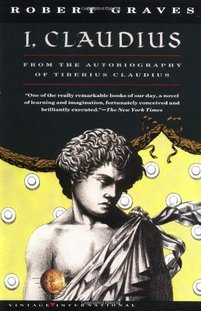 P: “I, Claudius” by Robert Graves is my favourite, although I reckon the style of it would put off most modern readers. It’s the story of a boy everybody thought was stupid, who rose to become Roman Emperor. The historical events described in it are more astonishing than anything fiction can produce. Peadar, I can't thank you enough for your delightful fairy deviltry, and for taking the time to answer my questions! Congratulations again on the sequel, and good luck on your next project. If you are interested in purchasing The Call and The Invasion, please visit Peadar's website Check out Peadar on social media: Facebook ~ Twitter ~ Goodreads Previous author interviews: Alexandra Oliva - The Last One Andrew Shaffer - Fifty Shames of Earl Grey Want to keep up to date on upcoming author interviews, win prizes, and see what's next on my publishing list? Subscribe to my newsletter here. Author Interview - Andrew Shaffer3/1/2018 Come one, come all, to read Fanny Merken's masterpiece of style and smut, Fifty Shames of Earl Grey!
It is my privilege to interview the fantastic Ms. Fanny Merken (who goes by the alter-ego Andrew Shaffer) about her novel, Fifty Shames of Earl Grey. I finished it in one plane ride, which was luckily loud enough to conceal my constant snorting and sporfling over this gem of a parody. Please join me in the second installment of a series of author interviews and welcome Andrew. Grete: When was the exact moment you knew you would be parodying Fifty Shades? Did you come up with Earl's list of shames first, or did those develop as you wrote? Andrew: I read Fifty Shades early on, when it was being hyped as the next big thing in romance, and after a couple of pages I could tell it wasn't very good. In fact, it was awful. I wrote a blog post parodying it, and a publisher contacted me with an offer. I wrote a rough draft in ten days, and it went to auction with multiple publishers bidding on it. The rough draft was called Fifty-One Shades. When the book sold, the publisher asked me to change the title to avoid reader confusion. That's where Fifty Shames of Earl Grey came from. During revisions, I worked Earl Grey's different "shames" into the book—which worked out really well, because readers were being shamed for reading Fifty Shades. The book's themes evolved over time. In the published version, it reads as a defense of guilty pleasures...ironic, given that it started out mocking one. G: Was it a challenge to find the right tone? Any moment when you just scrapped the manuscript and said, "Yeah, this isn't going to work"? A: I knew what tone I wanted for Fifty Shames of Earl Grey right from the beginning—a Naked Gun, Airplane-type vibe. I pushed some jokes further during revisions, but the tone never changed. That's not to say things always work out that way. I rewrote the book I'm currently working on several times because the tone wasn't working. It's a mystery, and it started out slapsticky and ended up much more realistic. If something's not working, it's always easier to scrap it and start over than to try to salvage it. G: If you're anything like me, you're probably on an FBI watch list because of your research internet history. Given the subject matter at hand, I have to ask: What's the weirdest thing you looked up for this book? A: Butt-chugging. Google it. (Grete's note: For the record, I totally did, and I recommend you do it, too.) G: Comedy and satire can be extremely tricky to read aloud, and yet you do it with aplomb. How do you prepare for live readings of your work? A: I view readings as performances, which they are. I edit passages so that they work better live. If I'm on a tour, I cut stuff that doesn't get a reaction and try out ad-libs. Nothing irritates me more than going to a reading and watching the author flip through their book looking for something to read. It makes me cringe. Did you not realize you were going to be asked to read from your book...at your own reading? C'mon, son. G: I see you now have a sequel, Gone Grey, riffing off of Gone Girl! Another book I never read, but I did see (and enjoy) the movie. How did you choose Earl's latest adventure? Anything else in the pipeline? A: Readers need to be familiar with the book you're parodying. There's usually only one or two books a year that reach a critical mass in pop culture that makes them good targets for parody. If there's a movie, that's a big help. It worked out that Gone Girl was about a married couple, and it felt like a good place to pick up Earl and Anna's story from Fifty Shames of Earl Grey. There's also a related short story online—"An Earl Grey Christmas"—but nothing else in the pipeline. G: You're pretty engaged with your readers on social media. Does that ever get overwhelming? A: Social media can be fun. It can also be overwhelming. My advice to writers is to pick the one or two social media platforms you're most comfortable with, and ignore the rest. You may get some blowback from your publisher, but it's your time, not theirs. Nobody's paying you to do social media. I deleted my main Twitter account last year. I don't use Tumblr or Snapchat. The two social media platforms I use are Instagram and Facebook—for now, at least. (Grete's note: Twitter account reinstated! Link is below.) G: Among your parodies are several focusing on Edgar Allan Poe's work. I'm not so subtly hoping I have found another horror fan... Why Edgar? A: I've always been a horror fan—I wrote tie-ins to Sharknado and Ghostbusters, though those franchises blur the lines between horror and sci-fi. When Quirk Books put out Pride and Prejudice and Zombies, I started brainstorming other "mash-ups" utilizing public domain works. The best—or worst—idea I had was a book of "sexy Poe" stories. A couple of publishers read the collection I put together, and said it was too disgusting to publish. I eventually self-published Edgar Allan Pole's The Telltale Hardon, and it went over like a fart in church. G: Do you have multiple projects going on at the same time? How do you juggle projects in completely different genres? A: I usually have multiple projects going on at the same time, but always in different stages—I could be researching one, and writing the first draft of another. Or outlining one, and doing copy edits on another. I read in multiple genres, and don't find it too difficult to go back and forth. At this stage of my career, I think my voice is pretty consistent from project to project. G: What strategies would you most recommend to a new or up-and-coming author? Can be craft-wise, marketing-wise, whatever you like! A: Writing publishable material takes years of practice. It's a skill, not a talent. Nobody picks up a violin for the first time and expects to play a concerto. Writing is no different. Have patience. That's exactly what I wouldn't have wanted to hear when I was starting out, so I don't expect anybody to listen to my advice. It doesn't make it any less true. G: And finally, I'm a voracious reader and always up for an excellent book. Please rec me your favorite!
Andrew, thank you for your wonderful parody, and for taking the time to answer my questions! I wish you luck on your next project. If you are interested in purchasing Fifty Shames, please visit Andrew's website COMING SOON: April's author interview with YA author Peadar Ó Guilín Previous author interviews: Alexandra Oliva - The Last One Want to keep up to date on upcoming author interviews, win prizes, and see what's next on my publishing list? Subscribe to my newsletter here. We have a winner!2/14/2018 Congratulations to Jennifer R, who just won a free copy of Alexandra Oliva's thriller The Last One! Want to sign up for a chance to win free prizes? Visit my Contact Me tab and subscribe to my monthly newsletter! Author Interview - Alexandra Oliva1/31/2018 If you love dystopia with a splash of horror, then Alexandra Oliva's reality-show-turned-survivalist-apocalypse The Last One is the book for you. 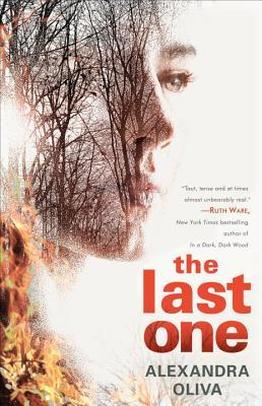 "Maybe I'm not even going east. Maybe sunrise and sunset have been reduced to parlor tricks. Maybe my compass is rigged, and my magnetic north is really a remote-controlled signal easing me into an oblivious spiral. Maybe I'll never make it home." It begins with a reality TV show. Twelve contestants are sent into the woods to face challenges that will test the limits of their endurance. While they are out there, something terrible happens—but how widespread is the destruction, and has it occurred naturally or is it man-made? Cut off from society, the contestants know nothing of it. When one of them—a young woman the show's producers call Zoo—stumbles across the devastation, she can imagine only that it is part of the game. I recently got the chance to chat with Alexandra Oliva about her novel, The Last One, the first book I read in 2018. And what a read it was! Equal parts clever and harrowing, The Last One tells the story of a reality show on the eve of a catastrophe, and bends the perception of reality for character and reader alike. Please join me in the first installment of a series of author interviews and welcome Alexandra. Grete: So I guess the obvious first question is, what's your favorite reality show? Alexandra: The Great British Baking Show, hands down. I love how non-confrontational and sincere it is—while still being oddly intense. Plus, the other day I walked into a local bakery and I got to be like, "A princess torte! I know what that is!" I used to be really into a bunch of survivalist shows—my favorite was a Discovery Channel show called The Colony—but I'm kinda over those now. After designing my own show for this book, I was ready to move on to other things. G: Rewrites and redevelopment are part of a writer's reality. During the course of writing the book, did any of the characters end up vastly different from how you first imagined them? A: Brennan gained a lot of depth over the course of revisions. Although his scenes are all written from Zoo's perspective, I needed to make sure everything he said and did made sense, so I had to imagine every scene from his perspective as well. The ending of the book was pretty tricky to write, and deepening my understanding of his character and his perspective was key to getting it right. G: Who surprised you the most? A: Exorcist—simply by being in the book. When I was designing my cast for the show, I knew I needed a wild card character, but I wasn't sure who he was going to be. Then I came across a book someone had left on the sidewalk; it was an exorcist's memoir. I was like—yes, that's my wild card right there. I never actually read the book I found, but that's where Exorcist got his start, and I'm so glad things happened that way. Writing Exorcist and his antics was incredibly fun, and it provided a nice counterbalance to getting lost in some of the darker parts of the book. G: Who is your favorite character in The Last One? A: I identify most strongly with my main character, Zoo, but I also have a special place in my heart for Engineer. He's so sincere and well-meaning, and his reasons for going on the show are just so pure. G: Naturally I now have to ask: If pressed, which one would you vote off the island? A: If I were a contestant on the show, I would want Exorcist gone ASAP. He'd annoy the hell out of me. If I were making the show, I'd get rid of Biology because she ends up being more bland than the producers had hoped. G: I found the double narrative structure of The Last One especially engaging. How did you select this story-telling method? Did you try to tell the story a different way originally? A: Thanks! I had the idea for The Last One while I was revising and trying to find representation for another project, so even though I knew I wanted it to be a novel, I started out by writing it as a short story. The short story was essentially a condensed version of Zoo/Mae's journey home after everything went to hell. For the novel, I loved the idea of weaving in a narrative of the show itself with an expanded version of the narrative I already had. I think I found this so appealing in large part because it allowed me to explore two extremes of Zoo's personality—the bubbly animal-lover cast on the show for her chipperness and the hardened, struggling survivor who's just trying to make it home. How—why?—did she shift from one extreme to the other? To me, that question forms the heart of the novel. G: What was the craziest research you did for this novel? A: A two-week-long wilderness survival course in Utah. It was so intense, I lost nearly twenty pounds over just those fourteen days. More importantly, I learned about bow drills, skinning animals, and what it feels like to be starving and exhausted and to have to just keep putting one foot in front of the other. (Want to know more about Alexandra's wilderness survival experience? Check out her essay on LitHub and Waterstones blog post!) G: There is understandably some harsh material in this book. Were you afraid you might lose readers because of any of it? Have you gotten any flack in response? A: I didn't think about the book's audience much at all, honestly—at least not until after the book was sold. Then I was worried I might be asked to change things to make the story more palatable to a wider audience. I wasn't worried about any of the gruesome stuff—plenty of fiction contains horrific scenes—but my main character is an atheist who doesn't come to believe in God, and in a wider sense the book is an exploration of the blindness of chosen belief, and there are plenty of people who have a problem with this (just look at my one-star reader reviews). Thankfully, my editor wasn't one of them. That part of the book is very important to me, and if some people decide my writing's not for them because of it, I'm okay with that. Not every book is for every person. G: What strategies would you most recommend to a new or up-and-coming author? A: Take a deep breath, enjoy the highs, and try not to take the lows personally. G: What was the most difficult aspect of getting The Last One published? A: Probably the nine years of rejection that I went through with two other novels before I wrote The Last One and met my agent. It's so hard to accrue rejection after rejection and it's even harder to put a 100,000+ word project into a drawer to never be seen again, even if the reason you're doing it is because you know you can do better. I'm glad I went through all that, though—my practice novels (as I now like to call them) were key stepping stones to my finally being able to write a novel worthy of being published. G: And finally, because I'm always on the lookout for an excellent read: Can you tell me about your favorite book? Why is it your favorite? 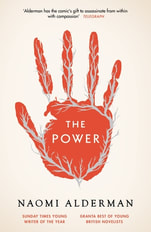 A: I love too many books to pick a favorite, but I recently read The Power by Naomi Alderman, and I highly recommend it. It's a fantastically ambitious novel about what might happen if girls worldwide suddenly gained a huge amount of power—the ability to discharge electric shocks. It's a premise that could easily get out of hand or come across as campy, but Alderman executes it so incredibly well. It's awe-inspiring, really. Alexandra, thank you for letting me pick your brains about a book I enjoyed so much! I wish you all the luck on your next project.
If you are interested in purchasing The Last One, please visit Alexandra's website The Big Fat Book Rec Post!1/6/2018 Oh my gawd, I read so many books last year... Way more than I normally do. Which is on top of the fanfic I also read, so if you think about it, this is probably just half of the total. But ANYWAY I have recs for you! (Note: If a book I read last year was not recced, it doesn't mean I didn't like it. I liked a LOT of books on my list last year. It just means I had to choose one for each rec category.) My recs of what I read in 2017 (aka, The Year of World Craziness): If you like... ROMANCE May I please direct you to: Uncommonly Tidy Poltergeists by Angel Martinez 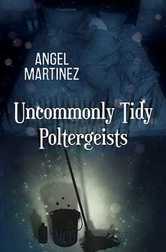 My thoughts: This was delightful. An easygoing read featuring a little bit of otherworldliness, a little bit of fumbling, a lot of lovely description, and a main character who is asexual. A cozy nighttime snugglebook, pairs well with a cup of cocoa. HORROR May I please direct you to: The Call by Peadar O'Guilin 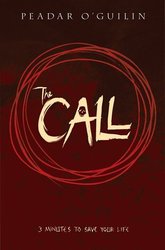 My thoughts: Arrrrrggggh, my FAVORITE type of horror: the kind that comes out of your dreaming subconscious. This is a YA about fairies. Real fairies. We're talking Rawhead and Bloody Bones here. COMEDY May I please direct you to: Fifty Shames of Earl Grey by Fanny Merkin (aka, Andrew Shaffer) 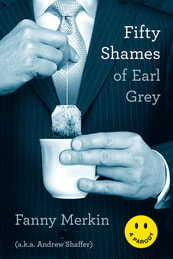 My thoughts: Oh lordy, this book. I read it on a plane. I was lucky no one badgered me to stop snort-laughing. (TIP: Follow this guy's social media. He's hilarious.) ADVENTURE May I please direct you to: Six of Crows by Leigh Bardugo 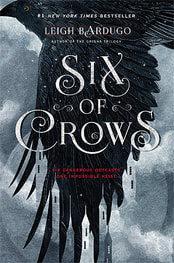 My thoughts: Wahoo, a heist book! It's rare that I like every single character, but I liked Every. Single. Character. The pacing is excellent, the story engrossing, the magical element ingenious, and the resolution well-executed. Of course, now I need to read the sequel... FANTASY/SCI-FI **BEST BOOKS OF THE YEAR** It is with wild excitement and great joy that I direct you to: Red Rising and the sequel, Golden Son by Pierce Brown My thoughts: HOT DAMN. Holy shit. So, Dune has a baby with Gladiator and then, being conscientious parents, immediately volunteers it as tribute. Best thing I have read in years. My reading goal this year is not to read 30 books, but to make 30 people read these books. Flawed and complicated characters, fantastic plotting, a HUGE scope, a well-executed cause-and-effect of action and motivation, and lo and behold... the sequel was just as good! Warning: after the first 1/3 of either of these books, I had to stop reading at bedtime; the tension just kept hyping me up!
So that's it from me for 2017. Let me know what books you liked in your reading year and, most importantly, read on, my friends! Time After Time, the series: thumbs down9/17/2017 Hm.
One question for you, show, and I guarantee, if you can answer it, it will solve all your problems: Why Jack? Let's really think about this for a moment. Why did you choose Jack the Ripper as half of your main draw, and then utterly fail to utilize the unique, paralyzing horror of him to drive your plot? Raise your stakes? (All you people concerned about spoilers, do not fear; I only lasted ten minutes into the pilot. Which brings me back to my nitpick...) You have to grip me right from the get go. Hell, you already have me! I'm one of THOSE people, the kind that owns books like Ripperology and movies like From Hell, watched all of Whitechapel the tv series, and is unduly fascinated by the history of Whitechapel's most notorious serial killer. I know a whole lot more about it than I should. Takeaway: You had me at Jack. And then you lost me because YOU didn't have Jack. I mean, in the same amount of time, you've got HG Wells down: he writes, he's smart, he's got an effing time machine... He might not be like he was in real life, I don't know, I don't study him. But I'm interested, as far as the character goes. But with Jack, you introduce him with a murder that needs to encapsulate the monster he was... and you don't. Like, at all. Don't mistake me: it's a horrible murder. But it isn't Jack's. There is a reason he was the scariest sumbitch in the area and you did not even remotely capture that. So I ask again: Why. Jack. Because you're name dropping? Make up your own murderer then. Because you want the thrill without the actual baggage that goes with it? Make up your own murderer then! Because it would be a bad fit for the somewhat humorous tone you're trying to set? Well, hell. If you're trying to be funny, maybe JtR isn't the guy you need. (Incidentally, is this a kids' show? If so, I repeat: maybe JtR isn't the guy you need.) So. WHY JACK? I'm done. I need good time travel stories. Where did 12 Monkeys get to...? I just bought this: How to Write a Book Proposal.
The story of how I got my agent is pretty unusual. I was straight out of my Masters degree, and feeling for the first time that actually selling what I wanted to write was possible. (I went abroad and into some niiiiice debt for my degree. I love ya, America, but sometimes your educational system gets really snobby about what is acceptable reading fodder. The Great American Novel is not actually what everyone wants to read, ye ken? It's not actually the highest selling genre either, and it doesn't make you an amazing writer just because you wrote it. Thanks for brainwashing and demoralizing writer-hopefuls for years, but it's time to end that shit. You know how people always go, "But what are you going to DO with your writing degree?" It's time we all start answering, "Well, I am going to WRITE." /rocketscience) ANYWAY. I first spoke to my agent because I was suddenly optimistic! OMG, you mean people will actually buy my romance and horror? I HAVE SO MANY QUESTIONS. I turned to a friend and writing buddy, Diana Copland, and with much apology and profuse promises that I wouldn't poach her agent, I asked Diana if she could get me in touch with said agent so I could grill her about the publishing industry. Saritza Hernandez, kind soul that she is, let me yammer at her for a good hour with all my "HOW" and "WHATSIT" and "WHEN" and "WHEREFORE" and "I LIKE WRITING SLASH" and "AND SOMETIMES ALSO THE HORROR KIND". She answered everything in great detail, thereby making me even more optimistic. She put it within reach, which for years I had been taught to believe was a pipe dream. She asked what I was working on. I said I had a second-person POV male/male romance short story. She said, "Diana highly recommends your writing." I blubbered around a bit and probably made little sense but I know I said thank you. She said, "I'm not accepting submissions right now, but why don't you send me the story anyway?" Look, I get it. I get that I did not match up with my agent in the usual way. And I REALLY get it now, when I find that I have no experience writing a pitch. Point in fact, I'm about to start pitching my next project as a thriller series, and I'm like, shitshitshit, synopsis, is this a good synopsis? What the hell do you mean, 1-2 pages? Effing log lines, IT'S ONLY ONE LINE HOW CAN IT BE STOMPING ON MY HEAD LIKE GODZILLA? But I like all my characters, I can't just describe two! How does this make no sense to you?? It makes perfect sense, you just have to read the novel!! Hence, the purchase. My match with my agent was primarily through networking. A very important part of marketing, that, and one that I still have to practice. But I unknowingly sidestepped so many horror stories: authors who went through four agents, authors whose book deals folded right at publishing, authors who got scammed out of their burgeoning baby manuscripts. Looking back, it's frightening: I never saw what I was being spared. Complete fool's luck. I count myself extremely lucky and privileged to have found Saritza the way I did. Now I have to pick up the slack of my good fortune. Buckle down. Learn a thing or sixty. But hey, maybe this research will balance out the file the NSA has, documenting all my inquiries into scalpels, landmines, plagues, psychoses, handguns, the FDA, and the city of San Francisco. >_> AuthorHello! My name is Grete and welcome to my writing blog! I am a writer or romance, horror, and general observation Archives
July 2020
Categories
All
|
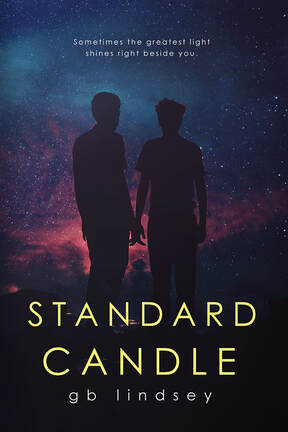
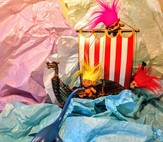
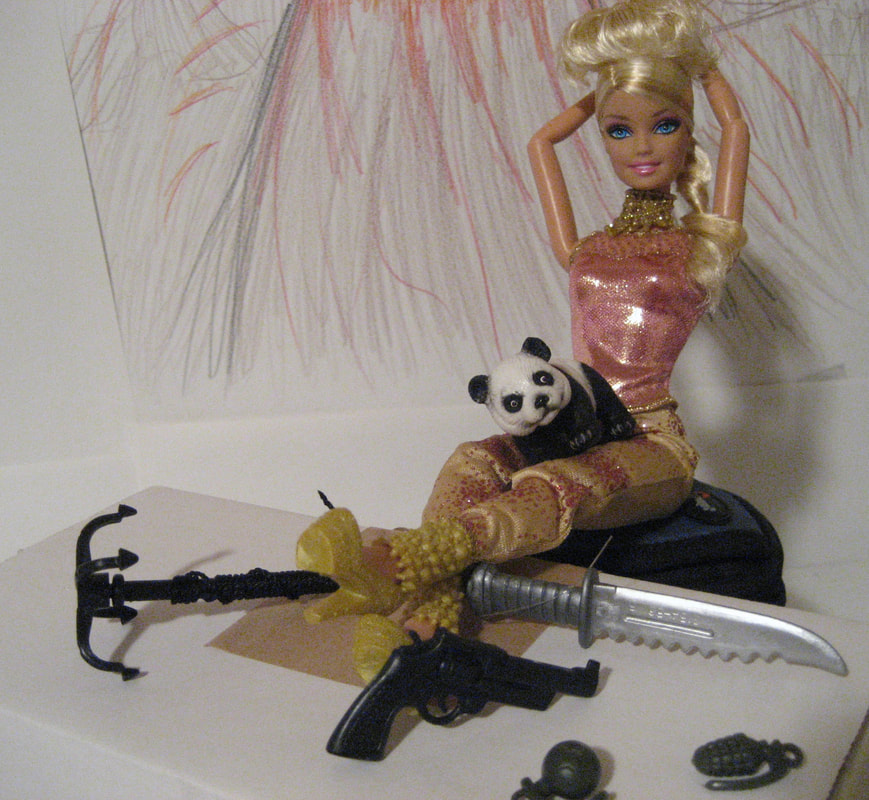
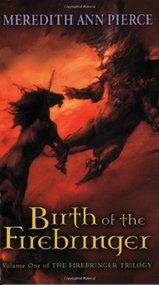
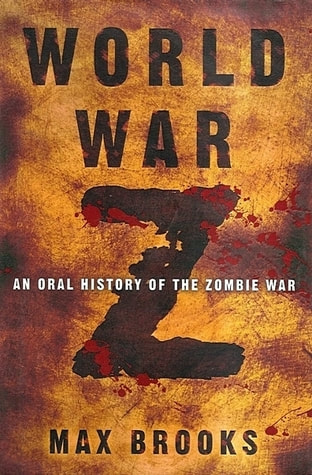
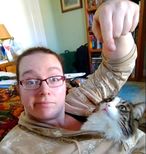
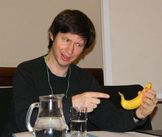
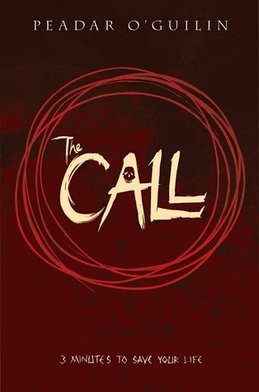
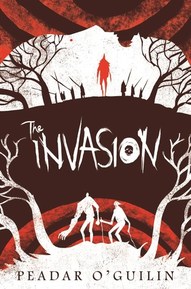
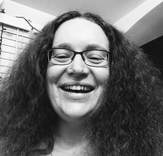
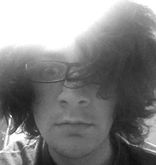
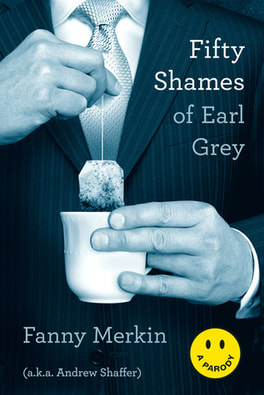
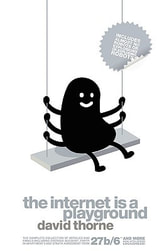
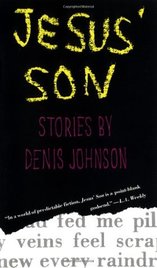
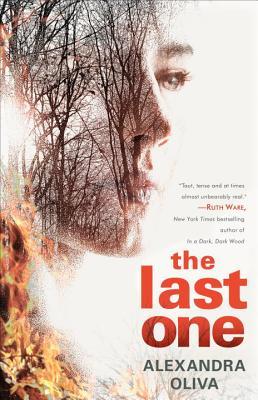

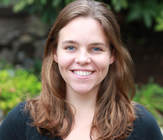
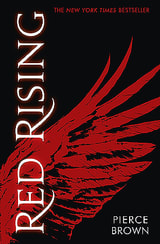
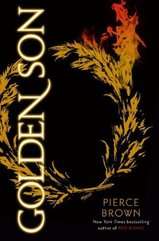
 RSS Feed
RSS Feed